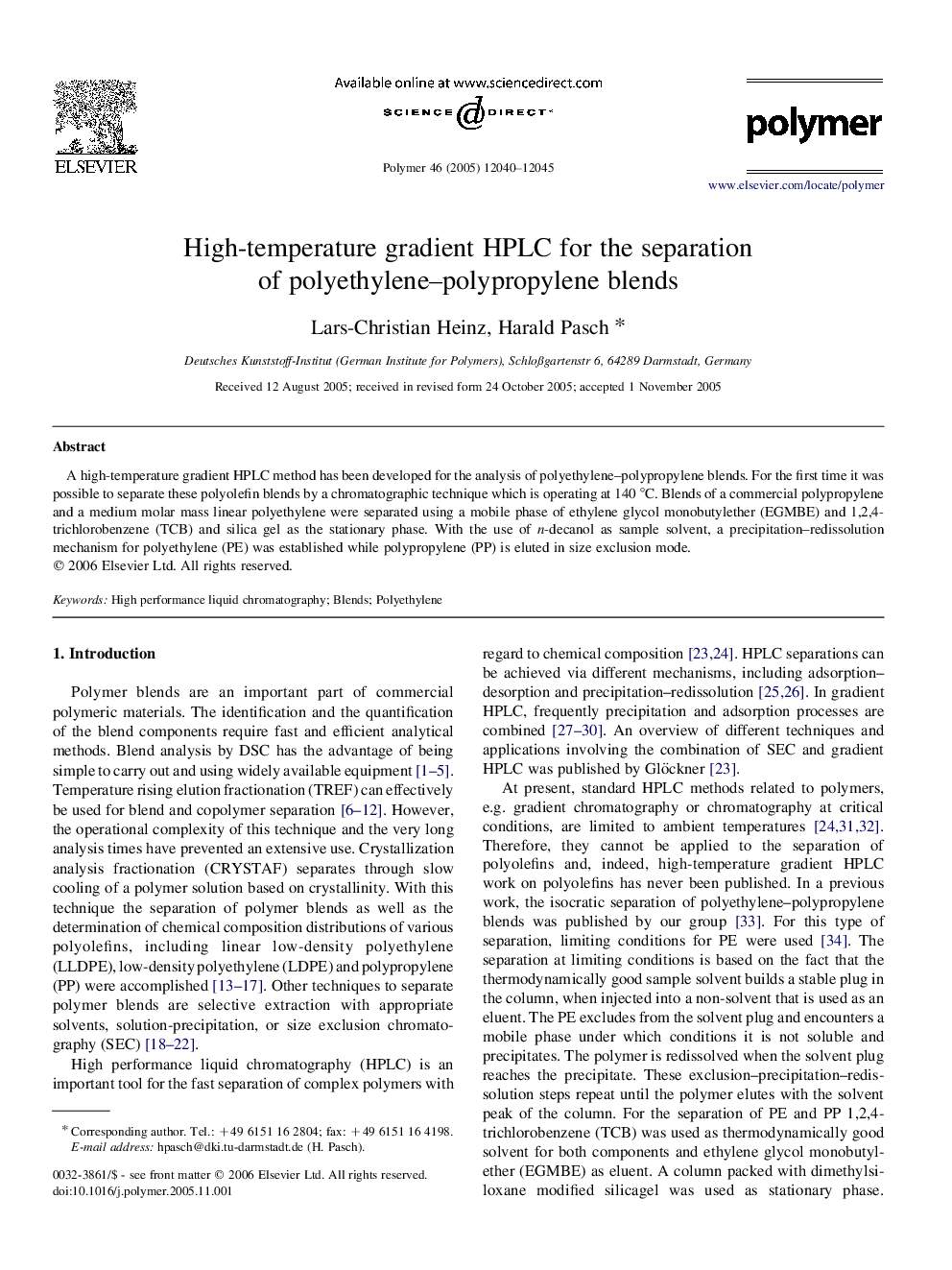| Article ID | Journal | Published Year | Pages | File Type |
|---|---|---|---|---|
| 5189601 | Polymer | 2005 | 6 Pages |
Abstract
A high-temperature gradient HPLC method has been developed for the analysis of polyethylene-polypropylene blends. For the first time it was possible to separate these polyolefin blends by a chromatographic technique which is operating at 140 °C. Blends of a commercial polypropylene and a medium molar mass linear polyethylene were separated using a mobile phase of ethylene glycol monobutylether (EGMBE) and 1,2,4-trichlorobenzene (TCB) and silica gel as the stationary phase. With the use of n-decanol as sample solvent, a precipitation-redissolution mechanism for polyethylene (PE) was established while polypropylene (PP) is eluted in size exclusion mode.
Related Topics
Physical Sciences and Engineering
Chemistry
Organic Chemistry
Authors
Lars-Christian Heinz, Harald Pasch,
